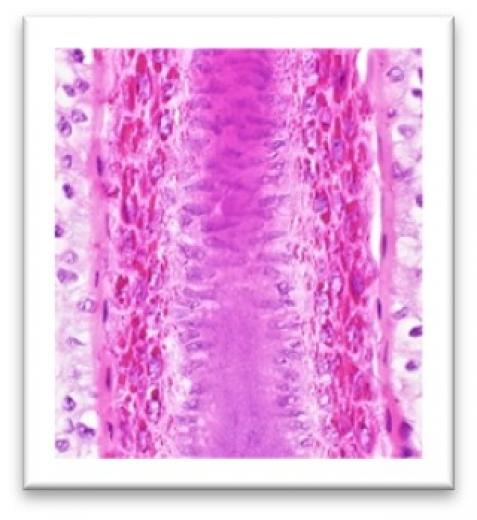1 5
1 5
Rashes
There are a wide range of skin rashes, many of which have typical clinical appearances. Eczema is one of the commoner rashes, but when it does not respond to the usual treatments a biopsy may either confirm the diagnosis or raise an alternative differential diagnosis and the possibility of a different direction for treatment. In somebody with a widespread chronic skin rash that will not go away despite repeated treatment the possibility of mycosis fungoides, or cutaneous T-cell lymphoma, comes into play. In the early stage of this disease, biopsies are challenging to diagnose. Good clinicopathological correlation between the clinical and biopsy appearances are essential. This is also one of the areas where we can use a range of appropriate immunohistochemical markers and molecular assays to characterise the cells infiltrating the skin and to establish the presence or absence of monoclonality.

